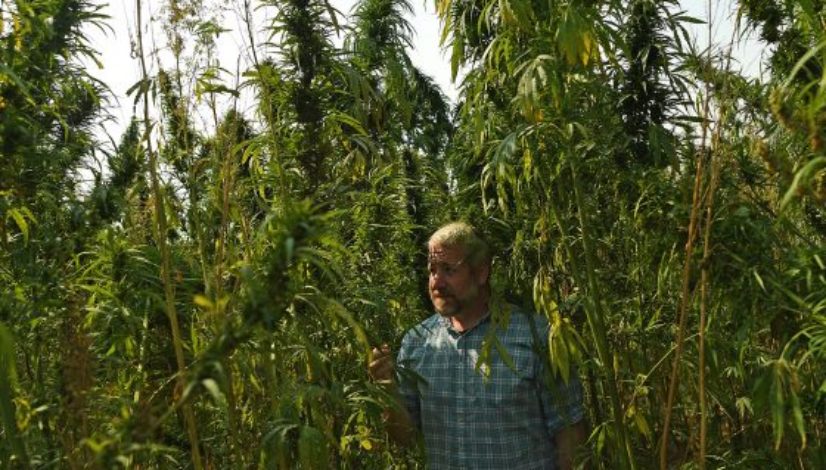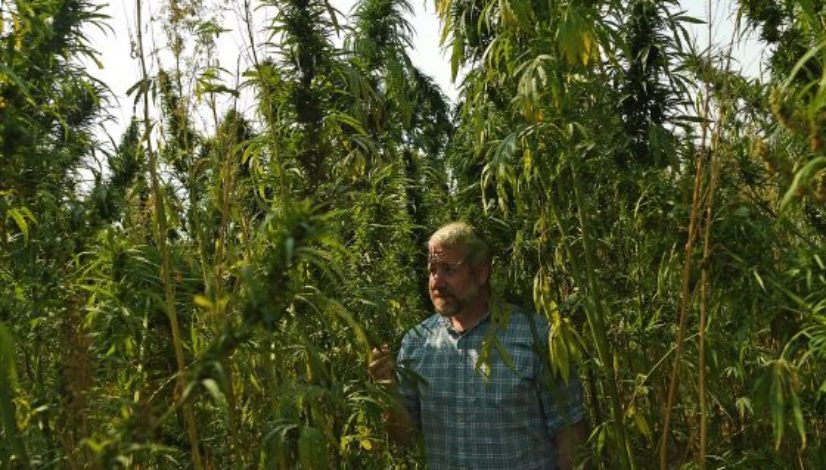Hemp power-players lobby Congress to shift mind-set, legalize crop

Published: Oct 17, 2017, 8:28 am • Updated: Oct 17, 2017, 8:45 am
By Alicia Wallace, The Cannabist Staff
American hemp is flush with grassroots organizations working to ensure the industry rises to prominence.
Now it has a “grass-tops” organization working to ensure that hemp’s fledgling federal protections gain permanence.
The U.S. Hemp Roundtable, a 501(c)(4) nonprofit, launched earlier this year with the backing of high-profile national hemp industry trade groups and a diverse slate of businesses. The coalition has ramped up lobbying efforts on behalf of the latest attempt to fully legalize hemp.
The nearly 30-member group is supporting the Industrial Hemp Farming Act of 2017 (H.R. 3530), a bill introduced in late July by Rep. James Comer, R-Kentucky, that would exclude hemp plants from the definition of marijuana under the Controlled Substances Act.
“Our whole point here, the message we’ve got to get to Congress is (hemp is) an agricultural commodity, but not a controlled substance,” said Jonathan Miller, a Lexington, Ky.-based attorney who serves as the U.S. Hemp Roundtable’s general counsel.
It’s an argument that has been made in the past to little avail, but Miller’s group is brimming with optimism about this iteration. He said H.R. 3530’s list of co-sponsors is growing — 30 Congress members have signed on as of Oct. 10; the measure is benefiting from “broad ideological support”; and it’s gained the backing of prominent agriculture groups such as the National Farmers Union and the American Farm Bureau Federation.
“All of the political cards are, right now, in our favor,” he said.
Related stories
- Wisconsin considers returning to its hemp farming powerhouse roots
- Op-ed: Trump, Congress should give hemp farmers more freedom to grow
- In its fourth harvest, Colorado industrial hemp industry still faces growing pains
- Minnesota tribe banking on hemp
- The Industrial Hemp Farming Act is back — is this the year Congress legalizes the crop?
And, to that point, that’s where the U.S. Hemp Roundtable could step in and stack the odds further in the industry’s favor, he added.
The U.S. Hemp Roundtable’s roots can be traced to Kentucky, home to one of the nation’s most mature hemp markets. The organization initially was founded a couple of years ago as the Kentucky Hemp Industry Council — shortly after Kentucky established its industrial hemp law — and its aim was to work for the betterment of local hemp businesses.
“There was a realization that our top goal needed to be the passage of this legislation in Congress,” Miller said.
To accomplish that would require a force more than one state strong.
The group adopted the national moniker earlier this year, dissolving the Kentucky Hemp Industry Council in the process. Since rebranding, membership grew fourfold to nearly 30 businesses and organizations.
There’s strength in numbers, but numbers also beget plenty of differing opinions, he said, noting the diverse business membership that ranges from investment and consulting firms to makers of textiles and CBD-rich extracts.
The U.S. Hemp Roundtable can serve as a singular voice for the collective on topics such as the legality of hemp-derived extracts, and it’s begun preliminary work on a self-regulatory organization to establish standards for industry members. But it also needs to firm up its mission, Miller said.
“It’s really important for us to be on the same page,” he said.
Some members and cannabis advocates have pushed for marijuana-related amendments to be tacked onto House Bill 3530. The roundtable’s position: Keep a laser-focus on hemp.
While hemp and marijuana are the same species, Cannabis sativa L., hemp is defined in the 2014 Farm Bill as containing less than 0.3 percent psychoactive THC.
The Cannabist has reached out to Comer for additional comment, but his office didn’t immediately respond.
“We believe pretty strongly that (the Industrial Hemp Farming Act of 2017) would pass, and it would pass by a comfortable margin,” Miller said. “And that’s not true about marijuana.”
There’s also some concern it would further muddle the lobbying efforts focused on educating lawmakers on the differences between the hemp and marijuana plants, he said.
“Our biggest challenge, no doubt, is the confusion,” he said.
Read: CBD legal opinion from the U.S. Hemp Roundtable
U.S. Hemp Roundtable, CBD Legal Opinion (PDF)
U.S. Hemp Roundtable, CBD Legal Opinion (Text)
Topics: congress, federal legislation, hemp, hemp farming, hemp regulations, industrial hemp  Alicia Wallace
Alicia Wallace
Alicia Wallace joined The Cannabist in July 2016, covering national marijuana policy and business. In her 14 years as a business news reporter, her coverage has spanned topics such as the economy, natural foods, airlines, biotech, retail,…




